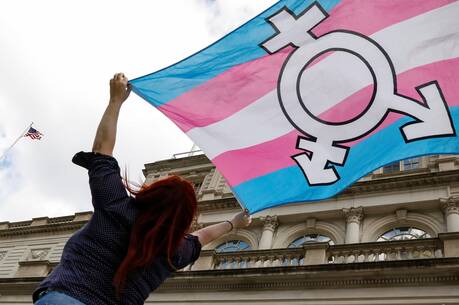The contradictory nature of Christ’s kingship, a sign of contradiction for the world and his followers, is not seen in the power that properly belongs to his kingship, but the manner in which he lays it down for the world and for the Church. This contradiction reveals not only the heart of the king, but the subjects who interpret this power as a means to impose their will or to conform their will to the obedient Messiah. Even the thought of power is intoxicating for us, heady stuff that makes a mind swirl with all that it could do and all that it could have: people would bend to its will, or be forced to do so.
It is a power that is expressed, though, through the loving care of God the shepherd in Ezekiel. Ezekiel writes,
I myself will look after and tend my sheep.
As a shepherd tends his flock
when he finds himself among his scattered sheep,
so will I tend my sheep.
I will rescue them from every place where they were scattered
when it was cloudy and dark.
I myself will pasture my sheep;
I myself will give them rest, says the Lord GOD. (Ezekiel 34: 11-12)
On the other hand, the shepherd who says “the lost I will seek out, the strayed I will bring back, the injured I will bind up, the sick I will heal,” also promises “but the sleek and the strong I will destroy, shepherding them rightly.” There is a profound reality to this power that cannot be escaped or ignored, especially at the time of the judgment:
As for you, my sheep, says the Lord GOD, I will judge between one sheep and another, between rams and goats. (Ezekiel 34:17)
Jesus’ parable picks up this theme in Matthew 25, with the separation of the sheep and the goats, but the scene of judgment, when seen in light of ancient monarchical or current tyrannical or misused power, shocks. Power seeks power, conquests and victories. Power rules to impose its power. The scene of righteous judgment, though, sees the King giving the Kingdom to those who acted on behalf of the weakest, those who in the world’s terms are nothing.
Come, you who are blessed by my Father. Inherit the kingdom prepared for you from the foundation of the world.
For I was hungry and you gave me food, I was thirsty and you gave me drink, a stranger and you welcomed me,
naked and you clothed me, ill and you cared for me, in prison and you visited me.'
Then the righteous will answer him and say, 'Lord, when did we see you hungry and feed you, or thirsty and give you drink?
When did we see you a stranger and welcome you, or naked and clothe you? When did we see you ill or in prison, and visit you?' And the king will say to them in reply, 'Amen, I say to you, whatever you did for one of the least brothers of mine, you did for me.'
Those who did not act on behalf of the weakest are condemned, not because the King wants to make a display of grand power or to chastise those who did not have power and who must now continue to be humiliated and embarrassed, but because those with earthly power did nothing to help those who were humiliated and embarrassed.
It is this reversal of power that runs constantly through the apocalyptic texts of Judaism and Christianity, starting from 1 Enoch through Revelation: human powers, who thought themselves invincible, will be upended by the only true power and Kingdom, that which is God’s, and the criteria by which one is judged worthy contradict all earthly measures of power. One wields power to lift up the weak and the lost, those people counted as nothing, and power is measured by whether we have remained faithful to this call.
The intoxicating effects of power are lost on God – the opiate effects of power impact only his followers lost in a haze or those who count God’s power as a meaningless fairytale, whose accountability to God is belied by a truth they have concocted: power does what it wants. Paul writes of God’s power, though, as the very power of life, the force that desires only the life of all, not the destruction of any, in 1 Corinthians 15: 22-24:
For just as in Adam all die, so too in Christ shall all be brought to life, but each one in proper order: Christ the firstfruits; then, at his coming, those who belong to Christ; then comes the end, when he hands over the kingdom to his God and Father, when he has destroyed every sovereignty and every authority and power.
For he must reign until he has put all his enemies under his feet. The last enemy to be destroyed is death.
When everything is subjected to him, then the Son himself will also be subjected to the one who subjected everything to him,so that God may be all in all.
This is the contradiction of true power: the Son, the King, would rather give it back than keep it as a possession, he would rather be subjected than subject. It is utilized only until every false power – “every sovereignty and every authority and power” - has been destroyed, including “the last enemy to be destroyed… death.” Power is intended to give life, not to corrupt or destroy it.
John W. Martens
Follow me on Twitter @johnwmartens








Not to mention the incident when Jesus was in the desert being "tempted" by Satan. He didn't just reject Satan's offer because it wasn't Satan's to make, I think, but because it was not what he was here for. Most of us wish for power when we feel weak, but, those who get how this is supposed to work, know power to be a burden rather than their glorification or deserved reward.